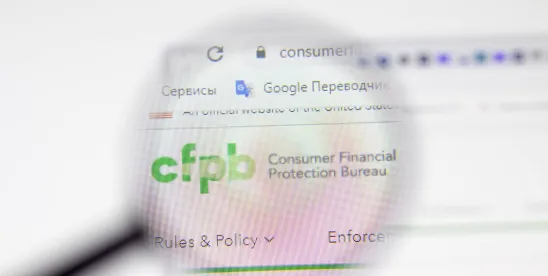A new circular published by the CFPB explains how non-disclosure agreements which do not clearly permit communication with law enforcement may violate federal whistleblower protections.
Key Takeways
- Broad NDAs which forbid or dissuade employees from blowing the whistle on potential law violations may violate the whistleblower protection provision of the Consumer Financial Protection Act
- “Companies should not censor or muzzle employees through nondisclosure agreements that deter whistleblowers from coming forward to law enforcement,” says CFPB Director.
- The CFPB’s circular follows increased enforcement by both the SEC and CFTC around restrictive NDAs
On July 24, the Consumer Financial Protection Bureau (CFPB) issued a circular explaining that broad non-disclosure agreements may violate the whistleblower protection provision of the Consumer Financial Protection Act (CFPA).
The CFPB’s Stance on NDAs and Whistleblowing
“Imposing sweeping nondisclosure agreements that do not clearly permit communication with law enforcement may intimidate employees from disclosing misconduct or cooperating with investigations,” the CFPB explains. “This could impede investigations and potentially violate federal whistleblower protections.”
“The law enforcement community uncovers serious wrongdoing by financial firms through whistleblower tips,” said CFPB Director Rohit Chopra. “Companies should not censor or muzzle employees through nondisclosure agreements that deter whistleblowers from coming forward to law enforcement.”
Section 1057 of the CFPA prohibits employers from “terminat[ing] or in any other way discriminat[ing] against” a whistleblower who reports potential violations of laws and rules that are subject to the CFPB’s jurisdiction. According to the CFPB, this provision prohibits employers from threatening to punish employees for blowing the whistle.
“Requiring employees to sign confidentiality agreements that are so broad as to forbid or otherwise dissuade employees from sharing information about potential law violations with the government or cooperating with a government investigation can amount to a threat to punish,” the CFPB explains.
Similar Stances by the SEC and CFTC
The CFPB’s warning and reading of the statute is consistent with the stances of other financial regulators. Both the U.S. Securities and Exchange Commission (SEC) and Commodity Futures Trading Commission (CFTC) have adopted and enforced rules which explicitly prohibit employers from impeding the ability of individuals to blow the whistle. A majority of these enforcement actions have concerned the use of broad and restrictive NDAs.
The SEC filed its first enforcement action over NDAs which impede whistleblowing in 2015, fining KBR for using confidentiality agreements which required employees to notify the company before contacting the SEC. Over the past year, the SEC has increased enforcement efforts around this issue, including a record $18 million penalty levied against J.P. Morgan.
In June, the CFTC took its first enforcement action against a company for using restrictive NDAs which impede whistleblowing. The agency fined Trafigura $55 million for, among other violations, using NDAs which did not include any exceptions for reporting to law enforcement agencies.
With their circular, the CFPB thus joins other financial regulators in sending a strong message to companies that they cannot stifle whistleblowing through broad and restrictive NDAs. This is crucial to the overall enforcement efforts of the agencies since, as the CFPB notes, “whistleblowing plays an important role in addressing illegal and unethical misconduct,”




 />i
/>i
